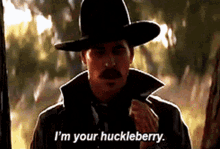On the topic of classic movies, and motivated by my recent realization that Gene Hackman is great in everything, I recently watched The French Connection for the first time.
I have a really hard time characterizing this one. I liked it, and almost certainly would have loved it if I had been around to see it in theaters against its contemporary counterparts, but I didn’t love it. And I’m not entirely sure why. I think part of it was that I don’t think I enjoy Hackman in the absolute lead as much as I enjoy him playing off someone else (like in Unforgiven and Crimson Tide). I guess Hoosiers would be an exception to that.
But I think the bigger part is how it was filmed. Something that’s easily described is its very herky-jerky, documentary style camera that almost induced a feeling of motion sickness. (Similar to the movement in Bourne Ultimatum.) But I don’t think that’s entirely it. A lot of times when I see a movie and can’t quite articulate why I felt about it the way I did, I’ll dig through critics’ reviews to see if they capture what I’m feeling. Ebert gave it 4 stars, so he obviously isn’t sharing my vibe, but he does capture some of it:
The movie is all surface, movement, violence and suspense. Only one of the characters really emerges into three dimensions: Popeye Doyle Gene Hackman, a New York narc who is vicious, obsessed and a little mad. The other characters don’t emerge because there’s no time for them to emerge. Things are happening too fast.
All true.
The story line hardly matters.
Yes - why is this good? Basically, I agree with how he described the ingredients but I simply think that those ingredients didn’t result in a great meal. Pauline Kael was much more negative and better captured how I felt:
I know that there are many people—and very intelligent people, too—who love this kind of fast-action movie, who say that this is what movies do best and that this is what they really want when they go to a movie. Probably many of them would agree with everything I’ve said but will still love the movie. Well, it’s not what I want, and the fact that Friedkin has done a sensational job of direction just makes that clearer. It’s not what I want not because it fails (it doesn’t fail) but because of what it is. It is, I think, what we once feared mass entertainment might become: jolts for jocks. There’s nothing in the movie that you enjoy thinking over afterward—nothing especially clever except the timing of the subway-door-and-umbrella sequence. Every other effect in the movie—even the climactic car-versus-runaway-elevated-train chase—is achieved by noise, speed, and brutality.
Writing all of this down, I think the most similar experience for me (both watching and in how I felt vs. the public) was Mad Max: Fury Road. The movie was a spectacle - loud and interesting and it kept my pulse up for a lot of it, but as I watched it I felt that was a storyline that I was simply missing and that there wasn’t enough substance underneath to make me really love it or want to watch it again.
Bring on the hate.


